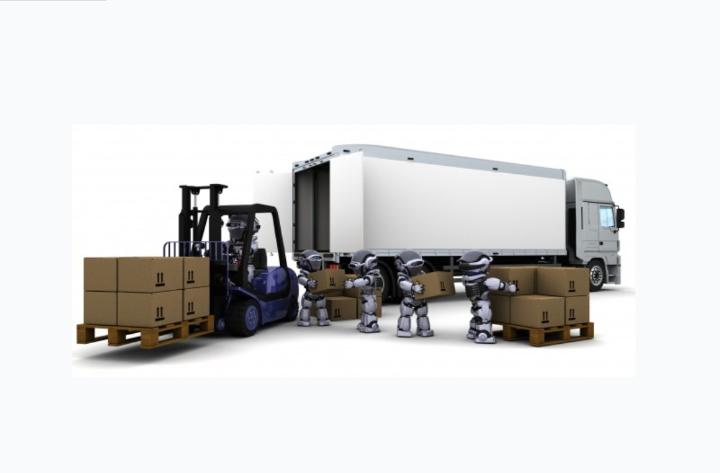5 Essential ERP System Modules For Distribution Management In Wholesale Distribution Businesses
Since 2020, businesses across various industries in Malaysia especially wholesale distribution companies have faced challenges due to the pandemic.
Luckily, technology advancements have allowed most businesses in Malaysia to adapt quickly and stay afloat by leveraging digital business solutions.
Realizing the need for businesses to get comfortable with implementing technologies, Malaysian government has taken the initiative to encourage digitization, digitalization, and digital transformation among Malaysian SMEs by offering a Digital Grant.
To achieve a successful digital transformation, businesses must first focus on digitization and digitalization. Implementing Enterprise Resources Planning (ERP) systems is a key way to achieve this.
Read more on How to achieve digital transformation through ERP system implementation
As we enter a new year, businesses should accept that integrating technologies into their daily operations is essential in today's competitive landscape.
Before this, we have discussed the 4 essential ERP system modules for manufacturing businesses in 2022. Now, let's prepare your wholesale distribution business for effective distribution management with 5 essential modules that you need to incorporate.
5 Essential ERP System Modules A Wholesale Distribution Company Should Have In 2023
· Sales Module
· Purchasing Module
· Inventory Module
· Invoicing Module
· Accounting Module

Sales Module
Quotations and orders are two big parts of the wholesale distribution industry.
Thus, the first distribution management ERP system module that wholesale distribution businesses should have is Sales Module.
Sales Module grants salespeople better customer order management capabilities and the ability to create professional quotations.
Salespeople also benefit from improved data accessibility, allowing them to efficiently follow up on leads and close more sales.
With real-time dashboard prepared by Sales Module, salespeople can accurately track and analyze various business metrics, including salespeople's performances, best-selling products, top customers, and KPIs, which guide future improvements.
By having Sales Module in place, wholesale distribution businesses will be able to trade and sell more efficiently, leading to overall distribution management success.
Purchasing Module
Wholesale distribution businesses often need to order large amounts of supplies, which come in variants from numerous suppliers.
Without a compatible distribution management ERP system, procurement departments face challenges in ensuring smooth operations.
By implementing Purchasing Module, wholesale distribution businesses grab crucial information such as price lists and KPIs of suppliers more readily. This information enables comprehensive analysis and comparison of supplier choices for better purchasing decisions.
The Purchasing Module also automates replenishment and purchasing tasks based on inventory levels, replacing the tedious and time-consuming manual processes.
With other useful features like accurate inventory forecasting, clear RFQ status monitoring, and effective product handling, wholesale distribution businesses can stay efficient, productive, and competitive.
Inventory Module
Usually, wholesale distribution businesses have to maintain substantial stocks of suppliers and products before they are sold or delivered to their customers.
That is why Inventory Module is crucial for inventory management in wholesale distribution industries, as it handles large quantities of inventories with different variants more efficiently.
The Inventory Module provides traceability and visibility, enabling complete tracking of stock movements from inventory receipt to storage to delivery.
Inventory Module also offers more accurate forecasting of inventory levels, empowering the Smart Scheduler function to automatically replenish stocks as needed.
This prevents wholesale distribution businesses from encountering understocking or overstocking issues, ensuring customer demand is consistently met without causing slow stock movement.
Invoicing Module
Wholesale distribution businesses often deal with a huge number of sales orders.
When there are large amounts of sales orders, the invoices that businesses will need to create will be plenty too.
That is why you will also need an Invoicing Module in wholesale distribution companies even it is not directly related to distribution management.
Inventory Module allows businesses to generate invoices easily whenever sales orders are confirmed. Both customer and supplier invoices can be well managed too.
Clear invoices overview, automated follow-ups on due payments, batch payments that support multi-currency, and more, are a few other benefits of having an Invoicing Module.
Accounting Module
Accounting plays an important role in any business regardless of its industry.
Accounting is needed as it provides financial information to businesses that could help them better strategize their future business plans and models.
With that being said, it is a necessity for all business industries, including wholesale distribution.
Wholesale distribution businesses that implement the Accounting Module will have access to clear and accurate financial information such as profit/loss, cash flow, taxes, customer acquisition costs, and so on, thus encouraging strategic planning.
Furthermore, manual tasks such as data entry that are prone to human errors can be reduced or avoided too through Accounting Module’s automation.

ERP system modules can work seamlessly well with each other for better distribution management in the wholesale distribution industry.
The modular system, allows different modules to be added to or removed from the ERP system according to the current needs.
If you ever feel confused or overwhelmed by the idea of implementing an ERP system for distribution management in your businesses, feel free to contact our team of ERP system experts for a detailed and professional consultation, just for you!
